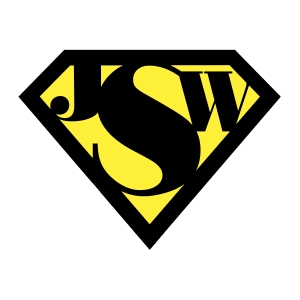Note: Explicit content ahead.
Patriarchy both creates the rage in boys and then contains it for later use, making it a resource to exploit later on as boys become men. As a national product, this rage can be garnered to further imperialism, hatred and oppression of women and men globally. -bell hooks
When I was a middle schooler, I was passed along a cross between a self-help book and comedy about becoming a SmartMouth Goddess. It was for adults. I was mesmerized by advice I didn’t know I needed: “Forget rules for catching a husband. How ’bout rules for catching a life?” This was the beginning of a lot of books. Back in 2004, when all this was happening, there was no Beyonce quoting Chimamanda Adichie. One state had legalized gay marriage. Nobody in my affluent public school had explained to me that #blacklivesmatter and that the Civil Rights movement was not over, and that hip-hop was not dominated by Eminem. Feminism was relegated largely to an academic sphere, rather than a headline issue, but suddenly, I saw it everywhere.
I’m sure my parents were weirded out when I started quoting Gloria Steinem and Jessica Valenti. This was something that stayed in the back of my mind, in high school and college. I was kind of uninspired by fighting the patriarchy, plus I had lots of stuff to do. But I was always someone who raised my hand in class discussions, and I noticed times when male classmates got uncharacteristically upset when I challenged them. I watched my school systemically slut-shame a girl in high school, in a way that was brutal, overt, and horrifying, when I didn’t even know the names of her supposed male paramours. “It was so angry.” But mostly, I kept my tongue.
Then I discovered Reddit, and my beliefs bubbled to the surface again. The more I pondered the deep internet, I saw how deeply uncomfortable social justice made people – particularly, men who are in dominant cultural positions who feel threatened by mentions of privilege. Words became extreme, biting, and violent. Feminists were not only laughed at as ugly or irrelevant, but seen as active enemies. Below are some photos I’ve culled within less than 5 minutes of Google searching:
When we first decided to take on a single podcast, I had no idea we’d do several. Eventually, I suggested a podcast network of multiple shows only because I loved the Slate daily podcasts, and now Panoply (Andy Bowers is a celebrity to me, apparently). I never thought I’d agree to do one. And yet…
The Internet is a scary place for women. When Chelsea and Andrew approached me about doing a social-justice themed podcast, I was excited to talk about things that mattered to me. Then I was scared. These stories have so much backlash. Women are doxxed, threatened, and I’ve even seen posts of women who were killed. Elliot Rodger was in several online circles that spewed hate behind chat room walls. Even in my industry, even as a theatremaker, there is prejudice. But being a storyteller requires vulnerability. So I want to go there. (Even though I don’t).
That’s why I named my podcast SJW. It’s a term that’s used specifically to sneer at feminism. And those who challenge racism. And those who challenge economic and environmental justice. We on the web hate SJWs because they’re so darn self-righteous, they’re so politically correct, they’re so preachy. Concern turns to nagging.
The thing is, stereotypes never change. The feminist killjoy is a long inspired figure. And as the ethos of social justice has become popular across the web, not all who grab their pitchforks are acting with critical thinking. I disagree with call-out culture within feminist circles on Tumblr and the blogosphere, and I am sympathetic to a lot of the rage that young men are experiencing. I feel like I am so deep into this world, tugged on both sides, that I may as well talk about it. I want to hear what people think, whether they are pro #gamergate or #YesAllWomen.
On this podcast, we’re going to talk about culture, online, that talks about social justice. I want to keep an ear to the ground on how people perceive gender. This is a part of Critical Point Theatre’s wider explorations in our multiyear laboratory on Internet culture and gender/sexuality.
This is something I’ve always been scared to do. Maybe, that’s why it’s worth it.
If I were really asked to define myself, I wouldn’t start with race; I wouldn’t start with blackness; I wouldn’t start with gender; I wouldn’t start with feminism. I would start with stripping down to what fundamentally informs my life, which is that I’m a seeker on the path. I think of feminism, and I think of anti-racist struggles as part of it. But where I stand spiritually is, steadfastly, on a path about love. -bell hooks
Tomorrow, our first post goes out.







